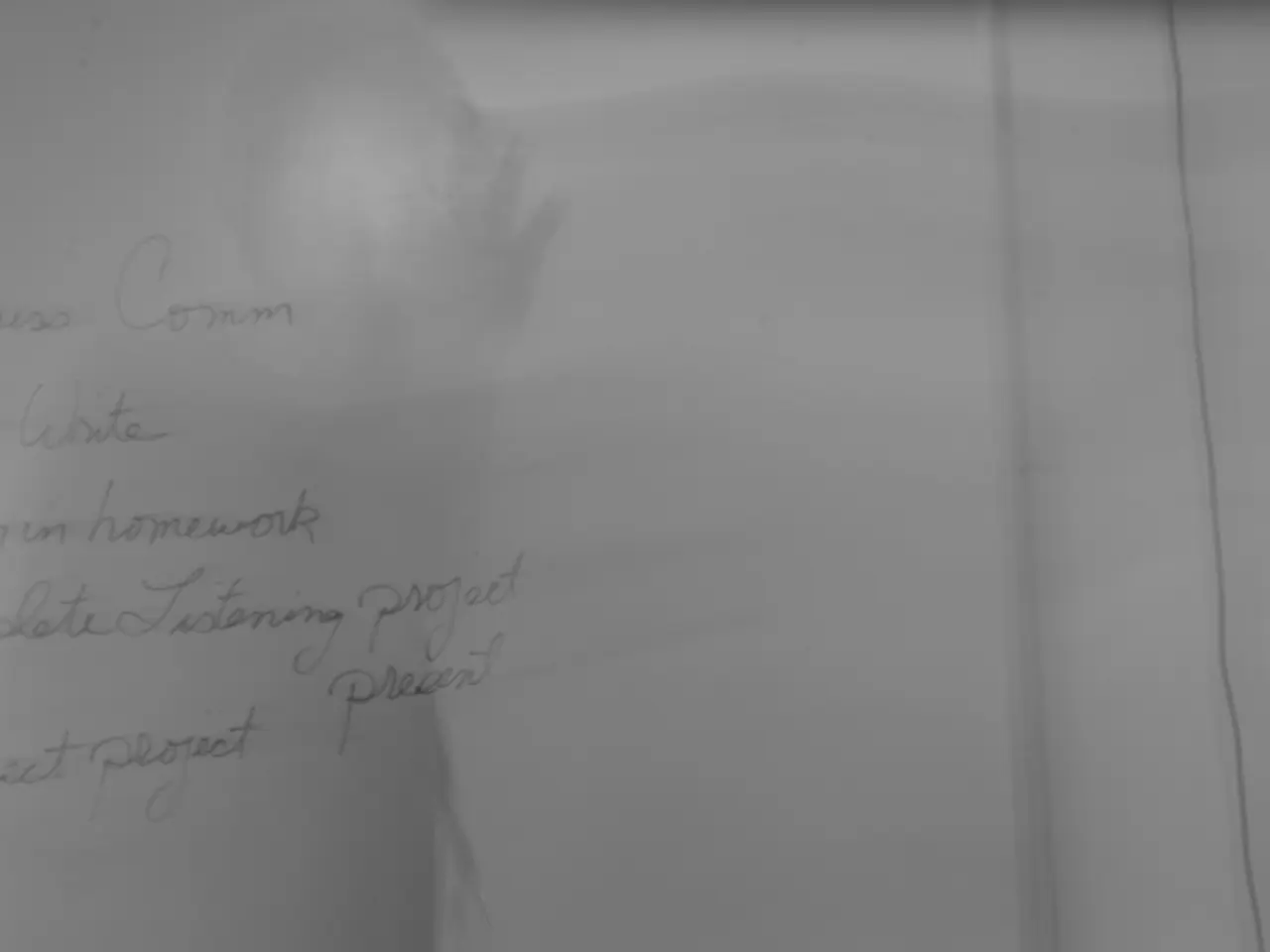Drawing the Line: The AfD Debate - A Matter of Approach and Pragmatism
Disputing the ban on debate within the AfD is flawed argumentation - Debate over Banning the Alternative for Germany (AfD) Party - Misguided Strategy Argued
In the political landscape, the debate surrounding the potential ban of the Alternative for Germany (AfD) party stirs up heated discussions, especially when it comes to regional views like those in Thuringia. Katja Wolf, BSW-Co-Chair and Thuringia’s Finance Minister, looks at the prospect of an AfD ban with skepticism. “Sure, we need to examine the party’s hostility towards the constitution," Wolf told the "Rheinische Post," "but the time for a decisive action hasn’t come yet. Engaging in a ban debate could compromise our democratic system.”
Recently, the SPD has shown an increasing openness to the discussion about banning the AfD. SPD leader, Lars Klingbeil, stated at a Lower Saxony SPD state party conference that “If the constitutional protection office determines that the AfD is a securely right-wing extremist party, all measures should be considered to address the situation.” These declarations come in response to the AfD’s recent classification as a “securely right-wing extremist endeavor” by the Federal Office for the Protection of the Constitution (BfV).
Thuringia's SPD leader and Interior Minister Georg Maier has been pushing for thorough examination of a potential ban procedure for quite some time. However, Wolf believes that the debate over banning the AfD gives off an impression of desperation in the competition among parties. “It seems like a panicked move,” she said, "People need to feel that there are alternatives to the AfD. The current ban debate is misguided. Instead, our focus should be on how we can help democratic parties regain the trust and leadership they’ve lost."
Thuringia’s BSW has witnessed internal disagreements on handling the AfD in the past. For example, BSW MP Steffen Quasebarth's appearance in an AfD podcast sparked criticisms within his own ranks.
The complexity of this issue becomes even more evident when considering the regional and federal perspectives. At the federal level, Chancellor Olaf Scholz and the SPD have approached the issue cautiously, understanding that the legality and constitutionality of any potential ban proceedings are crucial. The SPD and federal government have opted to examine the situation thoroughly before taking drastic measures. This approach is reflected in the AfD’s own legal challenge against the BfV’s classification.
In Thuringia, the focus is on more immediate measures to curb the party’s influence, such as restricting AfD members from holding certain public-sector roles. This approach reflects a more pragmatic effort to contain the AfD’s impact on the state, rather than seeking an outright ban.
Yet the legal landscape presents obstacles. Recent court decisions, like the reinstatement of the Compact magazine, emphasize the importance of solid evidence to justify outright bans on entities associated with right-wing extremism. Given this context, achieving an outright ban for the AfD poses significant hurdles both procedurally and constitutionally.
In this complicated political climate, the issue of an AfD ban is a delicate matter of approach and pragmatism. The federal government takes a cautious, legal-oriented stance, whereas Thuringia pursues more immediate but targeted restrictions to counter the party’s influence. Throughout, the constitutional, legal, and political realities shape these differing strategies.
The Commission, in the midst of this political climate, has also been asked to submit a proposal for a directive on the protection of workers from the risks related to exposure to ionizing radiation, given the ongoing debates about policy-and-legislation and general-news. The approach taken by the Commission should be one of pragmatism, considering the constitutional, legal, and political realities that shape the differing strategies in the AfD ban issue.








